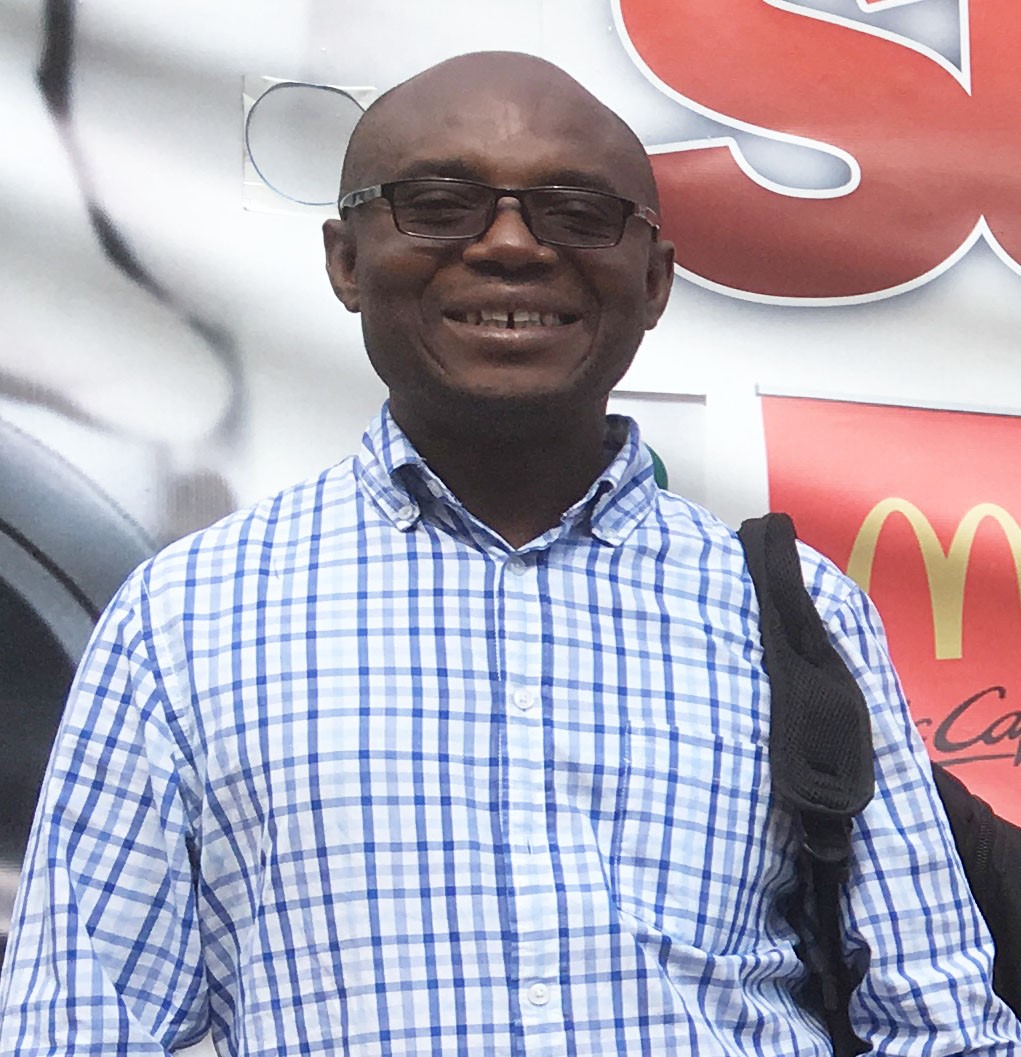|
Happy to be Part of the Effort...
Charles B. Chilufya, SJ, Social Delegate - JESAM
 For many years as I grew up, I lived by the conviction that my destiny was to develop myself in the engineering career. I grew up in a mining town, in Mufulira, Zambia and seeing the prospering lives of engineers of all kinds who worked for the mines, I felt attracted to the good life that those engineers led. At the same time, I grew up in a very Catholic family and so from very early on I had a strong desire to become a priest. So, for the first three decades of my life, my vision of life oscillated between serving my own personal career goals and the deeper goals of serving God and humanity. For many years as I grew up, I lived by the conviction that my destiny was to develop myself in the engineering career. I grew up in a mining town, in Mufulira, Zambia and seeing the prospering lives of engineers of all kinds who worked for the mines, I felt attracted to the good life that those engineers led. At the same time, I grew up in a very Catholic family and so from very early on I had a strong desire to become a priest. So, for the first three decades of my life, my vision of life oscillated between serving my own personal career goals and the deeper goals of serving God and humanity.
Three things were to change my life toward the service of God and humanity. First, I had a strong attraction toward silent prayer and from early on in my childhood, I used to spend a lot of time in quiet prayer and reading the scriptures. Second, because of my love for personal reflection and for the daily Eucharist, was the discovery that my life was meant to be broken like the body of Christ and be shared by all. This image of my life became so vivid that I could not run away from it. In addition, this discovery of the relationship between my life and the Eucharist, set me on the path toward the search for what that really meant.
So thirdly, much later in my school life, while I was at university in my final year, I served as an intern for the Jesuit Centre for Theological Reflection (JCTR) in Lusaka, Zambia. At JCTR, I began to discover what the 'breaking and sharing my life' could mean and the answer was the promotion of a faith that does justice. During those three months at JCTR, through reading and following the wok of the Centre and other related groups, I became more and more aware of the brokenness of our world and was now convinced that I was called to be part of the solution to bring healing and justice to a broken world. I further became convinced that I had the Jesuit vocation and that this vocation was about the promotion of a faith that does justice.
To complete the turnaround, my undergraduate studies in Urban and Regional Planning at university and my experience at JCTR gave me new eyes of looking at the world. The injustice and suffering both in my country and the world at large became so starkly clear. I knew from early on that I was to do something about the injustice I was beginning to discover in our world. So later on, when I joined the Jesuits, as part of the Jesuit formation, I had encounters with refugees, the poor and hungry and suffering. These encounters gave me a new energy to confront injustice and suffering. I became convinced my life was meant to stand by the marginalised, speak for them or simply be with them and accompany them in their struggles. I could not afford to be silent or to stay away. I realised, there is immense silent agony in the world, and the task of any human person is to be a voice for the plundered poor, to prevent the desecration of the soul and the violation of our dream of honesty.
Furthermore, when I studied theology and the Bible, my exposure to the prophets in the Bible and in our contemporary world intensified my desire to be committed to the fight for justice. The more deeply immersed I became in the thinking of the prophets, the more powerfully it became clear to me what the lives of the prophets sought to convey: that morally speaking there is no limit to the concern one must feel for the suffering of human beings. It also became clear to me that in regard to cruelties committed in the name of a free society, some are guilty, while all are responsible. I did not feel guilty as an individual African for the injustice and suffering in my country, in Africa and in the world at large, but I felt deeply responsible. "Thou shalt not stand idly by the blood of thy neighbour" (Leviticus 19:16) is not a recommendation but an imperative, a supreme commandment. Hence, I have decided to change my mode of living and to become active in the cause of justice and peace in Africa and in the world. I am indeed my brothers' and sisters' keeper and therefore happy to be part of the effort to promote the Jesuit social ministry in Africa and the world over.
|